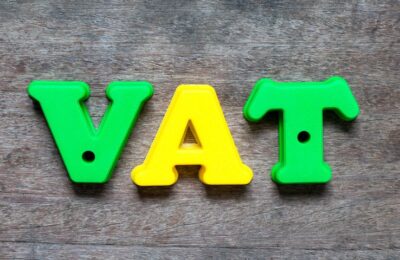How to reduce your Corporation Tax bill
If you’re running an SME, you’ll be familiar with keeping a close eye on the books to ensure cashflow is healthy. A potentially large expense each year for small and mid-sized businesses is, of course, Corporation Tax, which impacts on overall profits. Here we look at a few ways to reduce Corporation Tax.
In April 2023 the Corporation Tax rate rose from 19% to 25% so many more business owners will start to look for legitimate ways to decrease the amount of tax they pay.
Here, we suggest some ways of reducing your Corporation Tax bill legally.
Research and development (R&D) relief
R&D relief can be claimed on expenditure on projects that dedicate significant resources to the solving of scientific or technological difficulties.
Businesses in a huge range of sectors from architecture to food and drink can claim, so long as their activity is considered eligible. Qualifying costs for R&D tax relief include staff costs such as salaries and NI contributions and certain software and utilities such as electricity and water that are used directly for the project.
Small and mid-sized companies (those with fewer than 500 employees and a turnover of under €100m) can claim under the SME scheme, which offers 230% tax relief on R&D costs. In other words, for every £100 spent on research and development, Corporation Tax is reduced by £230.
The rules for claiming R&D Tax credits are constantly being revised, with the latest changes introduced from April 2023. If you think that you may qualify and wish to know more take a look at our special webpage on our R&D tax service here.
Pension payments
The Auto Enrolment campaign has been fully implemented for quite some time now, meaning that all businesses should now be paying some pension contributions to staff that meet the criteria.
Payments into pension plans by employers can help to reduce small business Corporation Tax. Contributions qualify as “allowable expenses”as they are clearly being made “wholly and exclusively for the purposes of your trade.
All employer contributions to pensions are therefore regarded as allowable expenses, meaning your SME will receive tax relief for any payments into pension plans.
Buying assets? Claim Capital Allowances…
If your business buys assets which are directly related to its business operations – such as machinery, equipment and vehicles – you can claim capital allowances. That means some or all of the value of the assets can be deducted from pre-tax profits.
The three main types of Capital Allowance from which SMEs can benefit are:-
- Annual Investment Allowance (AIA) – enables you to claim 100 percent of the cost of an asset against tax in the year of purchase. Businesses can currently claim up to £1m for qualifying investments.
- First Year Allowance – enables you to deduct 100 percent of the cost of new assets such as low emission cars, eco-friendly equipment and energy saving equipment from taxable profits. This allowance can be claimed in addition to AIA.
- Writing Down Allowance – enables you to claim a percentage of the reducing value ofcertain assets each year.
Capital allowances cannot be claimed on certain things such as leased items, buildings or equipment used for entertainment purposes.
We have written a special web page on claiming Capital Allowances on expenditure relating to buildings too, which you can find here.
Allowable expenses
Another valuable piece of small business tax advice is to ensure you and your staff claim expenses. From travel and mileage to lunch allowances while on a business trip or business costs on things such as stationery, there are many types of expenses that can reduce your overall Corporation Tax bill.
Basically just remember that any cost you claim for must have been incurred entirely for business use.
Patent box
Another example of how small business tax deductions can be made is the Patent Box scheme.
This scheme applies to companies that make a profit form exploiting patented inventions and creates a reduced 10 percent rate of Corporation Tax on applicable profits.
In order to claim, your organisation must make a profit using patented inventions on which it has developed the patents and/or own or exclusively license-in the patents.
To find out if your patents qualify and what type on income is eligible for relief, speak to a THP tax specialist.
Creative industries relief to reduce corporation tax
If your business makes profits from specific forms of media it can claim Creative Industries relief.
Eligibility is based on the company’s direct involvement with the production and development of:
- Certain films
- High-end and children’s television programmes
- Animations
- Video games
- Theatrical and orchestral productions
- Museum or gallery exhibitions
In order to qualify for Creative Industries relief, all films, TV programmes, animations and video games must pass a cultural test administered by the British Film Institute, which then issues a certificate.
Other categories don’t have to apply for this test. As with many tax relief claims, the process is complex but the rewards can be significant.
Trading losses
In some circumstances, trading losses can be offset against other profits, meaning that Corporation Tax is reduced.
For example, if your organisation makes a profit from renting out a building but makes a loss from trading in the same accounting period, the trading loss can be offset against the letting profits.
Trading losses are flexible in that they can generally be carried back against profits from the previous accounting period or carried forward to offset against future profits. Again, it’s advisable to seek assistance from a tax professional if you are making trading losses.
Following the Coronavirus outbreak, the Government has introduced ways to obtain refunds of Corporation Tax resulting from losses much more quickly. Please get in contact if you are looking for advice in this area.
Things to consider to reduce corporation tax
Now that you have a few ideas on reducing your Corporation Tax bill, here are a few final points to consider when it comes to paying up.
Firstly, the deadline for filing your Corporation Tax return is 12 months after the end of your accounting period.
Secondly, payments of Corporation Tax can no longer be made by post; you must pay by phone, online, by direct debit or in person at your bank or building society.
Remember that the payment may take a few days to process, so bear this in mind when choosing how and when to pay.
If you don’t owe any Corporation Tax for an accounting period, you still need to let HMRC know or you will continue to receive payment reminders.
Finally, any attempts at reducing your Corporation Tax bill should first be discussed with your business accountants or tax specialist.
At THP, we have extensive experience with helping companies reduce their Corporation Tax bills – contact us at one of our offices in Sutton, Chelmsford, Wanstead and Saffron Walden for details.
About Karen Jones
Having worked for one of the world’s largest accountancy firms, Karen Jones uses her tax knowledge and skills to help clients obtain substantial reductions to their tax liabilities.
With an expanding portfolio of tax clients, Karen enjoys the variety her work brings her and particularly likes working with new businesses and people. With a growing number of tax clients, she frequently faces a variety of challenges and relishes the experience she gains as she solves them.
Karen likes the THP ethos: “I like the way the team has a professional, but friendly and down-to-earth approach – it creates a productive atmosphere that benefits everyone.”
Karen’s specialist skills:
- Personal Taxation
- Tax Efficient Planning
- Trust Administration











